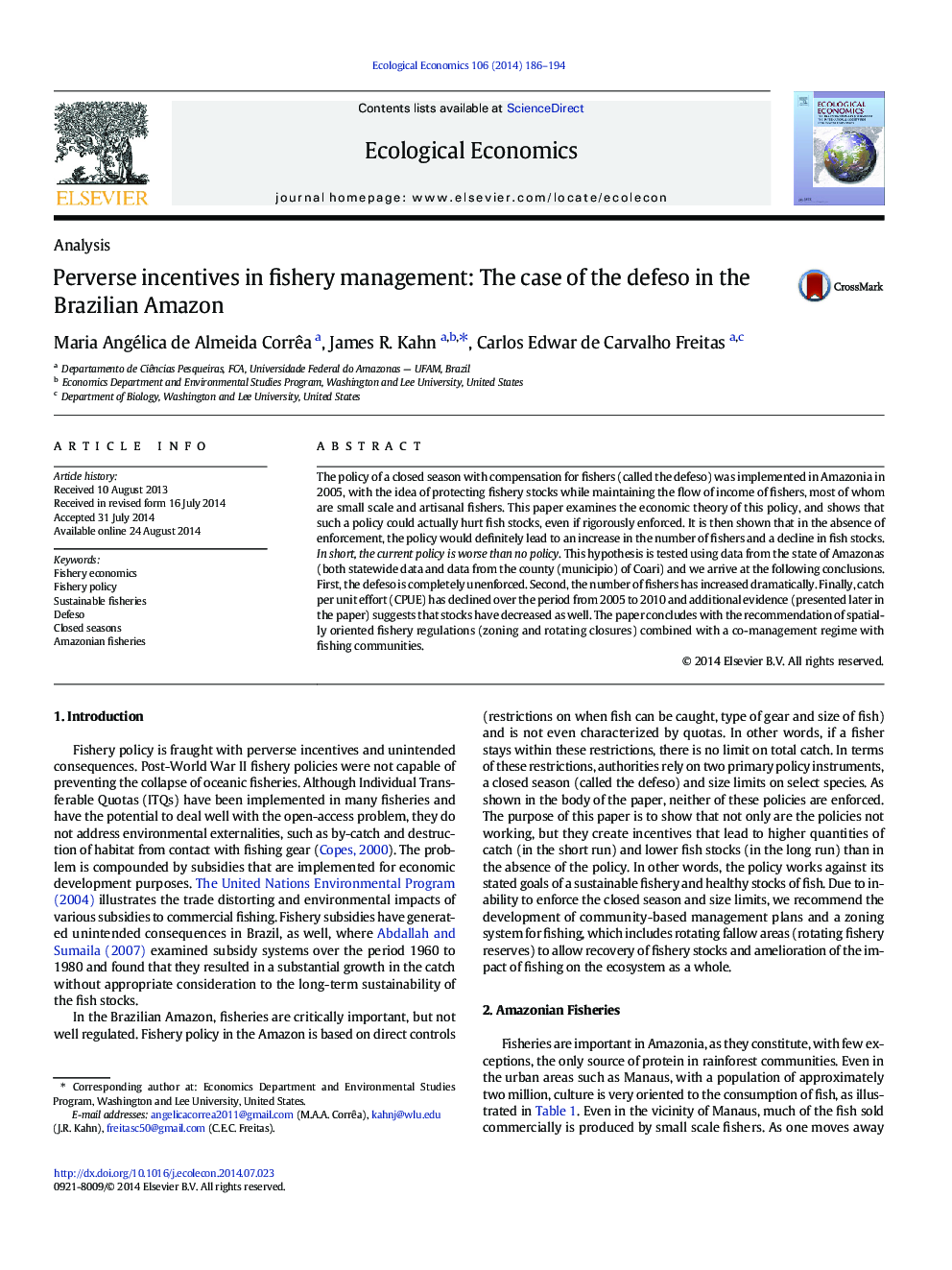| Article ID | Journal | Published Year | Pages | File Type |
|---|---|---|---|---|
| 5049650 | Ecological Economics | 2014 | 9 Pages |
The policy of a closed season with compensation for fishers (called the defeso) was implemented in Amazonia in 2005, with the idea of protecting fishery stocks while maintaining the flow of income of fishers, most of whom are small scale and artisanal fishers. This paper examines the economic theory of this policy, and shows that such a policy could actually hurt fish stocks, even if rigorously enforced. It is then shown that in the absence of enforcement, the policy would definitely lead to an increase in the number of fishers and a decline in fish stocks. In short, the current policy is worse than no policy. This hypothesis is tested using data from the state of Amazonas (both statewide data and data from the county (municipio) of Coari) and we arrive at the following conclusions. First, the defeso is completely unenforced. Second, the number of fishers has increased dramatically. Finally, catch per unit effort (CPUE) has declined over the period from 2005 to 2010 and additional evidence (presented later in the paper) suggests that stocks have decreased as well. The paper concludes with the recommendation of spatially oriented fishery regulations (zoning and rotating closures) combined with a co-management regime with fishing communities.
